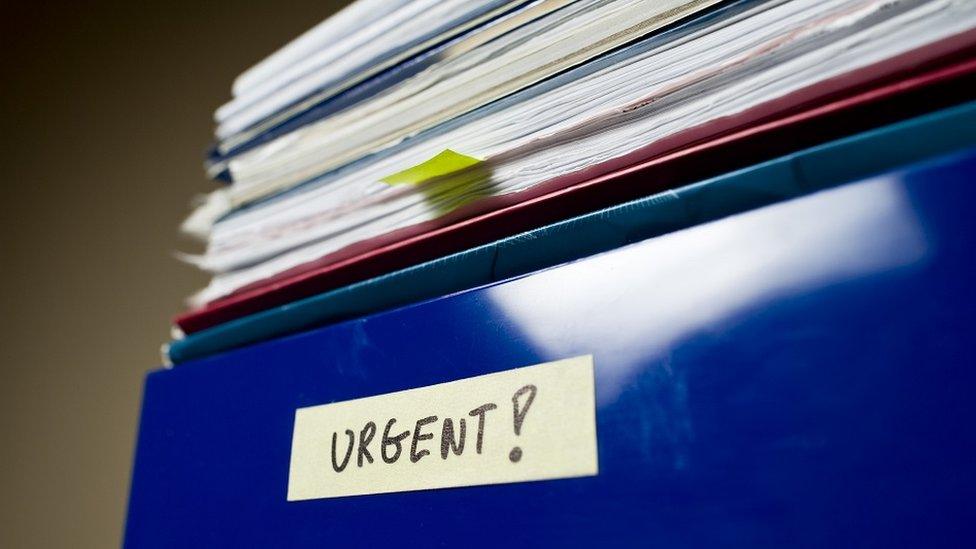Stormont: Micheál Martin calls for reform of political institutions
- Published
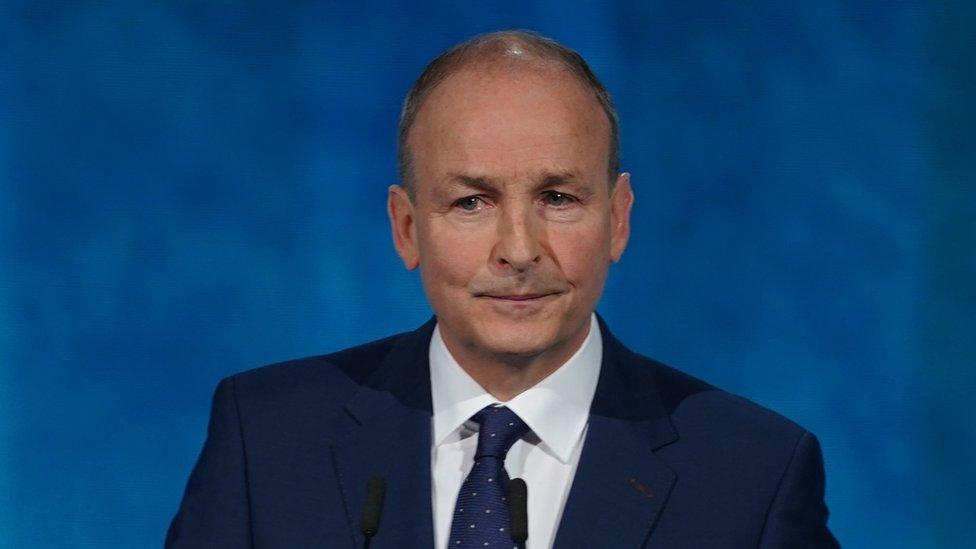
Fianna Fáil leader Micheál Martin is the tánaiste (Irish deputy prime minister) and minister for foreign affairs
Tánaiste (Irish deputy prime minister) Micheál Martin has called for reform of the political institutions in Northern Ireland.
Mr Martin said the return of the political institutions was "a necessary, and frankly, overdue step forward".
But he said the "realities of today are not those of 1998 and that the time has come for reform".
Mr Martin was speaking in the the Dáil (Irish lower house of parliament).
He made his comments during a debate on the political situation in Northern Ireland.
"I have said consistently that there must be room for the Northern Ireland parties and the British and Irish governments to look together at the institutions to ensure that they work for the Northern Ireland of today," he said.
"The agreement itself provides for this.
"It is my view that the realities of today are not those of 1998 and that the time has come for reform.
"I know that this is a complex and sensitive matter with different opinions around the table, but we simply need to find a way to end the cycle of instability, suspension and political torpor.
'Delicate balance'
"Strong partnership between parties in Northern Ireland, and the Irish and British governments, with respect for the fundamental principles of parity of esteem and rigorous impartiality, will be as crucial to any future arrangements as it has been to the crafting and operation of today's institutions across all the strands of the [Good Friday] Agreement."
Mr Martin said that as a co-guarantor, the Irish government "has a duty to protect the delicate balance" of the Good Friday Agreement, but it also has "a duty to ensure that the institutions operate as effectively as possible".
He offered his congratulations to Michelle O'Neill and Emma Little-Pengelly as they "take up the roles of First Minister and deputy First Minister, to Edwin Poots on assuming his role as Speaker, and to all the other members of the executive".
He also wished the SDLP MLA, Matthew O'Toole, well in his role as leader of the opposition in the assembly.
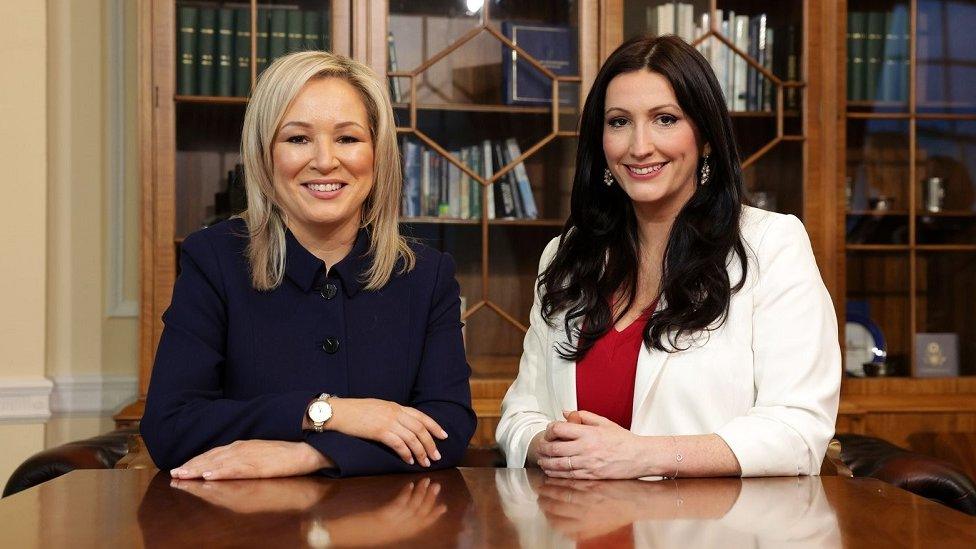
Michelle O'Neill and Emma Little-Pengelly have been appointed first and deputy first ministers of the Northern Ireland Executive
Power-sharing government returned to Northern Ireland earlier this month, after the Democratic Unionist Party (DUP) ended its two-year boycott over post-Brexit trade rules.
The political institutions collapsed after Paul Givan of the DUP announced his resignation as first minister of Northern Ireland in February 2022.
Sinn Féin's Michelle O'Neill made history after she was appointed Northern Ireland's first nationalist first minister.
The DUP's Emma Little-Pengelly was appointed deputy first minister.
The Good Friday Agreement of April 1998 brought an end to 30 years of conflict in Northern Ireland, known as the Troubles.
The Northern Ireland Office said the Executive's focus should "remain firmly on the priorities of the people of Northern Ireland".
"Any conversation around reform would need to be supported across the community and any changes to those institutions would require widespread consent as set out by the Belfast (Good Friday) Agreement," a spokesperson said.
- Published14 February 2024
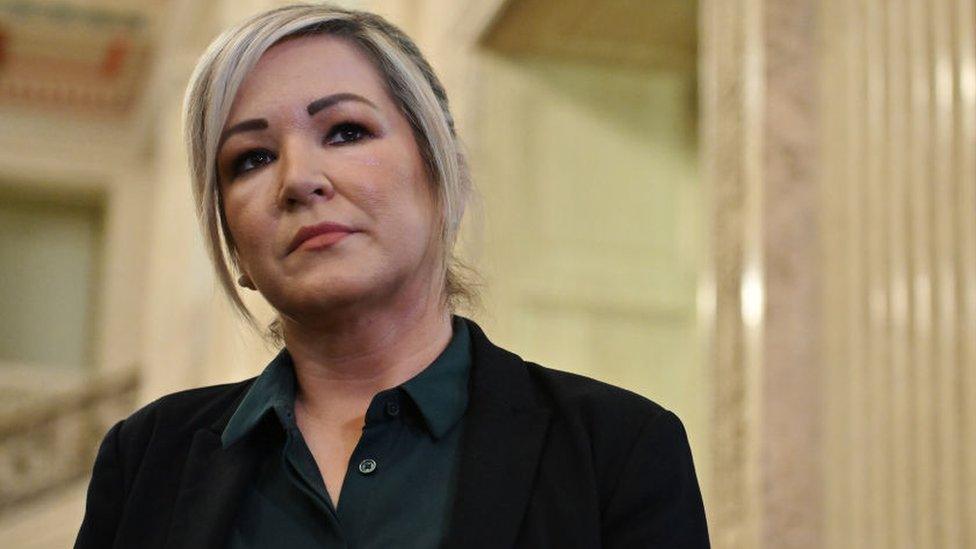
- Published4 February 2024
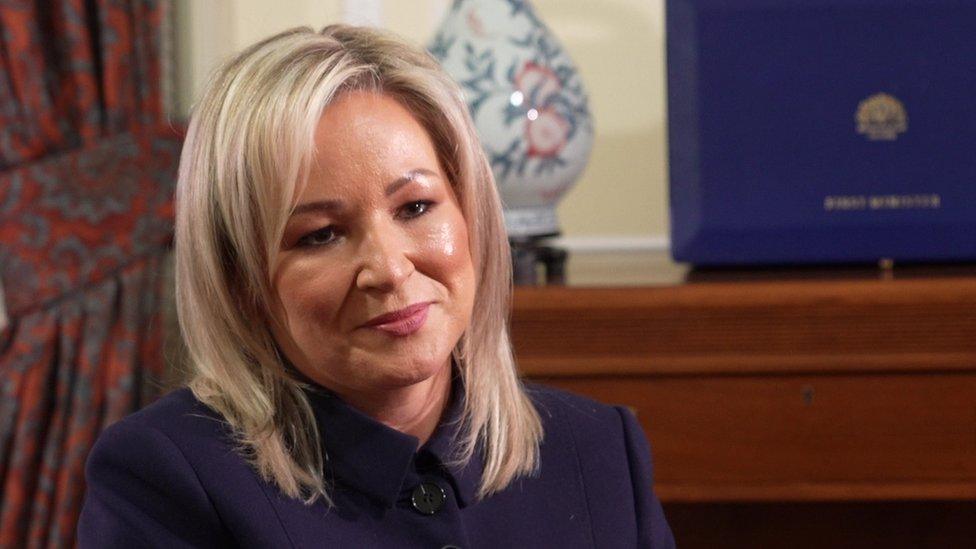
- Published3 February 2024
